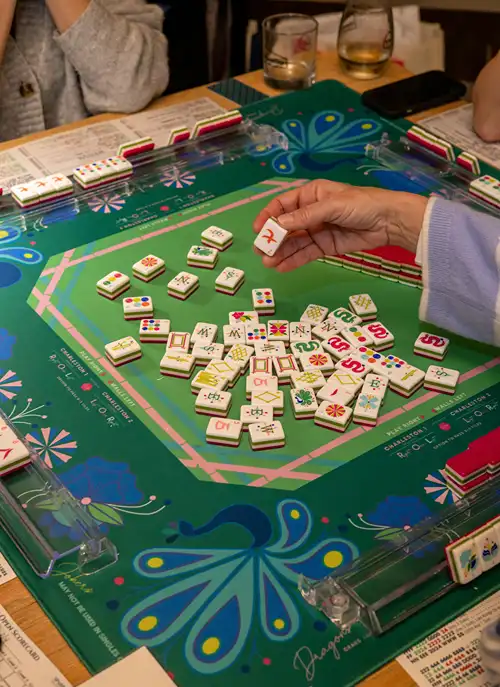How To Embrace Playtime as an Adult
When was the last time you truly let yourself play? Not just scrolling through your phone or having the TV on in the background, but engaging in something fun, social, or creative without worrying about being productive. Many of us think of play as something for children, but science, psychology, and history all agree that play is just as important for adults.
The Benefits of Play
Playtime is more than just a way to pass the time. It involves countless benefits for adults, including:
Creative Expression
Play allows us to step outside the strict patterns of daily tasks and responsibilities. When you play, your brain gets into a mode of experimentation where rules are flexible and new ideas can grow. Artists, entrepreneurs, and scientists often say that play is where innovation begins. Whether you are doodling on a napkin or role-playing “what if” scenarios in a board game, playful moments promote creative thinking. Even simple strategy games like Mah Jong encourage us to notice patterns, anticipate moves, and improvise—all skills that relate to solving problems in real life.
Socialize
Beyond sparking ideas, play brings people together. A game night, whether with family, friends, or colleagues, creates a shared experience that few other activities can match. Age, status, or background fade away as everyone focuses on the fun.
Throughout history, games have served to create and sustain community. Many traditional games hold deep cultural significance.
Relieve Stress
Modern life is full of stress—deadlines, bills, notifications, and endless responsibilities. Play offers a much-needed break. Laughter, light competition, or getting lost in a puzzle helps the brain step away from stress.
Psychologists often suggest play as a healthy way to cope. Just as exercise strengthens our bodies, play builds mental resilience. We learn to work through problems and challenges. We don’t receive many of these opportunities in hustle and bustle of daily life, so we should take advantage of it.
Honor Your Heritage
Every culture has developed its own forms of play. From indigenous stick games to African storytelling contests to playing Asian strategy games on mahjong sets, play preserves traditions and passes down wisdom. These cultures have been colonized over the centuries and have thus assimilated to Western culture. By practicing them, you can honor your ancestors and reject this assimilation.
Live Longer
Research shows that maintaining hobbies like games and playful activities helps improve longevity and quality of life. Seniors who stay actively engaged through play are less likely to face cognitive decline. Younger adults who make time for play report better stress management and strengthened friendships.
Play isn’t just about fun—it’s an investment in long-term wellness.
Ways to Reintroduce Play Into Your Routine
Given all the benefits of play, you should find ways to prioritize it in your daily routine. This can include the following strategies:
- Schedule a play night. Set aside one evening a week for games, puzzles, or playful activities with friends or family.
- Play with kids—or like kids. Join children in their imaginary games or let yourself be silly without fear of judgment.
- Gamify everyday tasks. Use playful challenges—like racing against a timer while cleaning—to make chores more enjoyable.
- Mix digital and analog. Balance video games with traditional tabletop favorites like Mah Jong, Scrabble, or card games.
- Start a tradition. Take turns hosting game nights or introduce cultural classics like Mah Jjong to your group.
Even 20 to 30 minutes of genuine play can leave you feeling refreshed and energized.
The Timeless Invitation of Play
Even though play may look more different when you’re adult in comparison to when you were a kid, that doesn’t make it any less impactful. When we view play not as a childhood pastime but as a lifelong need, we allow ourselves to live more fully. This kind of mindfulness can improve our lives in every possible way.
So, why not start today? Gather some friends, shuffle the cards, or set out the tiles. Make play a daily habit and discover its timeless value in everyday life.






